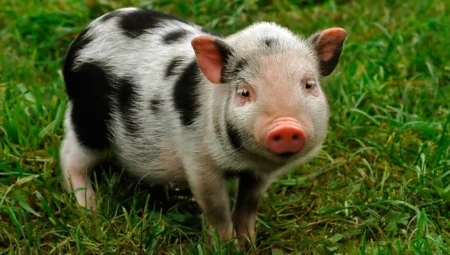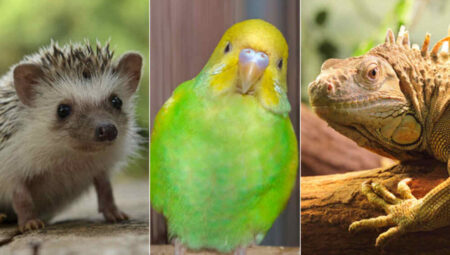The human fascination with domesticating animals dates back thousands of years. From dogs and cats to livestock like cows and sheep, humans have successfully bred and trained numerous species for companionship, work, and sustenance. However, the question remains: Is every animal domesticable? The process of domestication is complex and influenced by various factors, making it impractical or impossible for some species.
Exploring the Limits of Animal Domestication
Understanding Domestication:
Domestication refers to the process by which wild animals adapt to living alongside humans, resulting in genetic and behavioral changes over generations. Successful domestication requires specific characteristics in animals, as well as human intervention and selective breeding.
Factors Influencing Domestication:
- Genetics: Some animals possess traits that make them more amenable to domestication. These traits include a social structure conducive to living in groups, a flexible diet, fast growth rate, and a non-aggressive nature.
- Behavior: Wild animals with inherently aggressive or overly skittish behavior might not be suitable candidates for domestication. Behavioral traits like tameness, adaptability to new environments, and ease of training are crucial for domestication.
- Reproduction: Species with slow reproductive rates might not be conducive to domestication as selective breeding requires multiple generations to produce desirable traits.
- Ecological and Social Factors: Environmental conditions, availability of suitable food sources, and human interaction play a significant role in determining an animal’s potential for domestication.
Challenges and Limitations:
Not all animals are easily domesticated due to various challenges:
- Wild Instincts: Some wild animals retain strong predatory instincts or innate fear of humans, making them difficult to domesticate.
- Slow Reproduction: Species with long gestation periods or low reproductive rates hinder the pace of selective breeding required for domestication.
- Specific Environmental Needs: Animals with specialized habitat requirements or diets that are challenging to replicate in captivity might resist domestication.
- Human Safety Concerns: Species that pose a risk to human safety due to aggression or unpredictability are generally unsuitable for domestication.
Examples of Non-Domesticable Animals:
- Wild Predators: Animals like lions, tigers, and bears have strong predatory instincts and specialized needs, making them unsuitable for domestication.
- Rare or Endangered Species: Conservation efforts often prioritize protecting these species in their natural habitats rather than domestication.
- Highly Specialized Species: Animals with highly specific dietary or environmental requirements may not adapt well to human-controlled environments.
While humans have successfully domesticated a wide array of animals, not every species is amenable to this process. The feasibility of domestication depends on a complex interplay of genetics, behavior, reproductive traits, and environmental factors. The ability to domesticate an animal does not solely rely on human desire but also on the inherent characteristics and adaptability of the species.
As our understanding of genetics and animal behavior advances, there may be possibilities to domesticate certain species that were previously considered challenging. However, it’s crucial to approach the idea of domestication with ethical considerations, ensuring the well-being of both humans and animals involved in the process. Ultimately, while many animals can be tamed or trained, not all are practical or suitable for full domestication.
Is monkey a domestic animal?
Monkeys are not considered domestic animals in the same way that dogs, cats, or certain livestock species are. Domestication involves a long-term process of selectively breeding animals over generations to exhibit traits that are favorable for living alongside humans. While some primates have been tamed, they are not typically considered domestic animals.
Monkeys are wild animals and maintaining them as pets or in captivity presents numerous challenges. They have complex social structures, specialized dietary needs, and require specific environments that are difficult to replicate in a domestic setting. Additionally, primates, including monkeys, can pose safety risks and health concerns to humans due to their natural behaviors, strength, and potential for carrying zoonotic diseases.
Most countries have stringent regulations regarding the ownership and care of primates as pets due to ethical, welfare, and public safety concerns. In many places, it is either illegal or heavily regulated to keep monkeys as pets due to these factors.
While some primates, including certain species of monkeys, might be trained or tamed to some extent, their wild nature and specialized needs make them unsuitable for domestication in the same way as traditional domestic animals. Domestication involves generations of selective breeding to alter genetic and behavioral traits for cohabitation with humans, a process that has not been successfully applied to monkeys in the same manner as it has with dogs, cats, or other domesticated species.

Is Donkey a pet animal?
Donkeys can be kept as pets, but they are not as commonly considered pets in the same way as dogs or cats. Donkeys are often utilized for specific purposes, such as working animals on farms, for transportation, or as companions to other livestock. However, some people do keep donkeys as pets due to their gentle nature, intelligence, and companionship they can offer.
In some cases, individuals or families may choose to have a donkey as a pet due to their docile temperament, their ability to form strong bonds with humans, and their usefulness in certain activities like hiking or riding. Donkeys can also serve as excellent guardians for other animals, such as goats or sheep, due to their protective instincts against predators.
While donkeys can make affectionate and loyal companions, they have specific needs that potential owners should consider. Providing adequate shelter, proper nutrition, regular veterinary care, and space for exercise are essential aspects of caring for a pet donkey. Additionally, understanding their social behavior and need for companionship, either with other donkeys or with other animals, is crucial for their well-being.
In summary, while donkeys are not as common as household pets like cats or dogs, they can be kept and cherished as pets by individuals who appreciate their unique qualities and are willing to provide the necessary care and attention they require.




